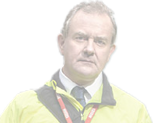Interview by Alan Franks for The Times
“Yes, but what does it mean?” asks Hugh Bonneville, the star, or rather one star, of a star-filled TV series called Freezing, about stardom and the desperate things that risen or fallen stars will do to retain or regain it. “What does what mean?” replies his old friend and co-star Tom Hollander, who plays a star agent trying to juggle the careers of stars to his own and their advantage. “Well, stardom,” says Bonneville. “Ah,” says Hollander. “It’s a fantasy term, meaning a world in which everything that hurts you doesn’t hurt you any more. It’s a place of imagined security where it’s marvellous and always sunny.”
“But then, in the end, you find yourself punching paparazzi,” says Bonneville. “Look, I’m not saying it’s healthy,” says Hollander. “I’m saying it’s mad. There are probably some actors who are very serious about acting, and only want to do it for its own sake. But most do have a little part of themselves that wants to be more successful, to be Ronnie Barker or whoever.”
“You don’t go on stage because you hate applause,” agrees Bonneville. “No, but then you discover how nakedly commercial it all is,” says Hollander. “You think it’s related to talent, and it isn’t. Not necessarily. The challenge comes when you’ve accepted that that’s the nature of it, and you then work out what sort of person you’re going to be.”
There are, to misquote Diana, Princess of Wales, three of us in this dialogue at Brown’s Hotel in Mayfair. At least there are meant to be, but for long periods you wouldn’t know it. Which is fine by me. The frequent trouble with stars is that they don’t say very much, beyond lavishing praise on their director, whom they may loathe, and trotting out well-worn versions of their life stories. They may well have gone into showbusiness precisely because they are happier saying other people’s lines and inhabiting other people’s lives.
Freezing (developed from a one-off on BBC Four last year) is no safe haven for Bonneville and Hollander, though, as their own long and intense friendship is one of the reasons they were cast here as a pair of inseparable chums. Bonneville plays between-jobs literary agent Matt, while Hollander plays his old pal Leon, a theatrical agent with Matt’s actress wife on his books. She is an American called Elizabeth and is played by Elizabeth McGovern, whose husband Simon Curtis is the producer of Freezing.
Confused? You shouldn’t be; the thing to remember is that this is a group of actors and producers taking the mickey out of their trade. It would be wrong to call it affectionate. The falsehood at the heart of the pretence industry may not be a new theme, but the satire of Freezing carries contempt as a snowball might carry a stone. Its title comes from a running gag about Elizabeth always trying to turn the heating up in their house; she is from the West Coast (as is McGovern), and the Californian sunshine is the second biggest sacrifice she’s made to settle with her hyper-English husband in West London, second only to her Hollywood career. “Why not wear a jumper, Elizabeth,” he says in his impeccable public-school voice. “Because I don’t want to wear a jump-ah,” she replies testily.
There are two and a half of them in their childless marriage, as the diminutive and chronically needy Leon has clasped both of them to him – Matt through the moral imperatives of old friendship, and Elizabeth through the ties of trade. He even moves into their house after claiming that his life is in danger from a slighted thesp, and instantly gets his PA to buy them superior bed linen. The whole thing is a brutal kind of excuse-me dance between empire-building agents and terminally insecure actors. Very insider, too, with Alan Yentob appearing as Alan Yentob. The snowballs may not succumb to a slushy ending, but writer James Wood is saying that in a world of flaky alliances, true friendship is beyond price, and hard work.
What are two nice young-ish men like Hugh Bonneville (44) and Tom Hollander (40) doing in a place like this? The former is the son of a surgeon, old boy of the boarding school of Sherborne, and theology graduate of Cambridge University. The latter, a son of teachers, went to Abingdon public school, then Cambridge to read English. He was just arriving there when Bonneville and his circle were leaving, and remembers them as “a lovely crowd”. As in Freezing, they had a shared actress friend, Caroline Loncq.
Hollander didn’t bother with drama school, though he got a lot of experience while at Cambridge, notably in the Footlights revue group and in Cyrano de Bergerac, directed by a promising undergraduate named Sam Mendes. By that time, Bonneville was at the Webber Douglas Academy in London, but wishing he wasn’t. “I saw some astonishingly talented people there who had the nerve knocked out of them, which I thought was despicable.”
The two gradually became identified with the nebulous entity called the Brit Pack. Being well spoken and very English, they had one foot in the virtual world of Richard Curtis films. Bonneville had a memorable cameo in Notting Hill, as a busy broker who fails to recognise Julia Roberts and tries to commiserate with her over the lot of the struggling actress. But there was more to them. Hollander started gathering serious praise for his West End stage work – from The Way of the World in 1992 to last year’s Landscape with Weapon at the National – and for his TV and film work (including The Lost Prince and Gosford Park). Bonneville, meanwhile, was covering a comparable range – from Laertes in the Branagh Hamlet to Philip Larkin in Love Again and the young John Bayley, husband of Iris Murdoch, in the film about the novelist, Iris.
But, says Bonneville, as if to enact the anxiety neurosis that fuels Freezing, no one remembers such things. “It’s all about marketability,” he says. “Shortly after Notting Hill, I went up for a little film part. I phoned a friend and said he should try for it, too, because I thought he was right for it. Half an hour later, he rang back – his agent couldn’t get him seen because his films didn’t gross enough. So it’s not even as though it’s about acting talent, just your position in the marketplace at a particular time. My ten lines in Notting Hill meant I got seen. But that didn’t last for long.”
Friendship, they agree, is different. It has to be if it is worth anything. And the durable ones are valuable beyond words in a working world of temporary alliances. So have they never fallen out? “Well, we’ve gone quiet on each other for long periods,” says Bonneville. “And there have been a couple of shouting-down-the-phones.” “He’s very good at it,” says Hollander. What, the shouting? “No, no, I mean, I tend to not be able to say anything. It just festers away. There was one great moment, wasn’t there, when you just turned up on my doorstep, smoking.” Bonneville says he doesn’t remember the smoking. “Yes, you were. There was a knock on my basement door and I opened it and you said, ‘What’s the matter?’” It sounds healthy, the sort of thing friends are meant to do.
“We don’t live in each other’s pockets any more,” says Bonneville. “I live in Sussex.” “He’s married,” says Hollander. “He has a wife [Lulu] and a child [Felix, 7], whereas I don’t. I lead the same life as I did when we first knew each other.” Were there suddenly three people in the friendship when Bonneville married Lulu? “No, no,” says Bonneville. “It was never as tight as that.”
Names come up, as they do in these conversations. First the names of half-forgotten peers, meaningless to anyone else. Then the names of the great ones in the profession, like Sir Ian McKellen and Daniel Day-Lewis, meaningful to everyone. “You bump into people from school or university after 20 years,” says Bonneville. “All right, more than 20 years, and they say, ‘Oh yes, I saw you in… you know. So you managed to keep the acting thing going then?’ A bit like, I suppose, our grandparents’ generation was – you know, ‘When are you going to get a proper job?’”
“When we left university,” says Hollander, “there we were, acting away, and our friends might have been on a year off, or being juniors in some firm, making the tea. And here we are, still acting, still learning lines, still going to auditions, and they are running the country. I mean, Cameron is our age. Nick Clegg was at Cambridge with me, and he was in a couple of plays. You’ll find a lot of people saying, ‘I always knew so-and-so, always knew he’d go far.’”
Later, Elizabeth McGovern says her greatest pleasure when doing Freezing was being in bed between Bonneville and Hollander, or Matt and Leon as I should really call them. Her husband – the real-life one, Simon Curtis – didn’t mind. Far from it. It turns out that it was his idea to do something about a deracinated Hollywood star struggling with the English climate (work as well as weather). McGovern is the real thing, with credits that include Once Upon a Time in America with Robert De Niro. She is even more emphatic than her co-stars about the false appearances of their profession. “To be in showbusiness,” she says, “even to be a very successful person in showbusiness, is to suffer humiliation on a daily basis. You get loads of praise for something you thought was awful, and then ignored for something you thought was really quite good. The whole thing is the opposite of what it seems.”
Friendship is the thing, then. Take Shakespeare’s words for it. “Those friends thou hast, and their adoption tried/ Grapple them to thy soul like hoops of steel.” It’s the stuff that upstages the illusions of success, that exposes the pull of stardom as the problem, not the solution, and stops life going past like a play you’ve missed – or failed to get a part in.
Freezing is on BBC Two at 10pm on February 20-22.









